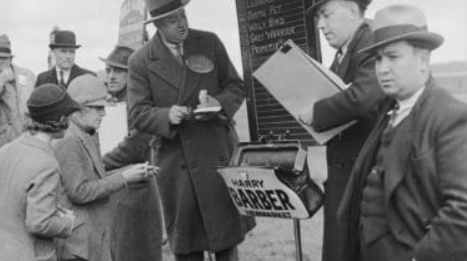Before there were apps, live odds, and flashy combo bets, there was the racetrack. The noise, the crowd, the smell of turf. Somewhere in the middle of that dust and adrenaline, a man held a pencil over a paper ticket, placing what might have been one of the world’s earliest recorded sports bets.
Welcome to the United Kingdom — the birthplace of regulated sports betting.
It’s hard to imagine today’s sleek, algorithm-powered betting world without its raw, boots-on-the-ground origin. But to understand where we are, we have to look at where it all started.

The UK: Where Wagers Became Legal
While informal betting has existed since ancient times — from Roman chariot races to Chinese board games — it was the UK that became the first modern country to legalize and structure sports betting in a way that resembled the industry we know today.
The Betting and Gaming Act of 1960 changed everything.
For the first time, betting shops could operate legally across England, Scotland, and Wales. By May 1961, over 10,000 licensed bookmakers were open for business. Football pools were already popular, but now betting extended to horse racing, greyhound racing, and other sporting events — and it was out in the open.
No longer hidden behind pub doors or whispered in alleys, sports betting had stepped into the light.
The Transition to Technology
For decades, betting meant a physical location: betting shops, racetracks, sports bars. That changed — slowly at first — in the late 1990s.
With the rise of the internet, online betting platforms began to emerge, primarily in the UK and Australia. But the big shift came when mobile phones became smartphones — and suddenly, the shop wasn’t just around the corner. It was in your pocket.
Today, countries around the world have followed the UK’s lead — each writing its own story, building its own rules. But the UK’s influence remains the blueprint.
Betting, Then vs Now: A Quick Look
| Era | How It Worked | What It Felt Like |
| 1960s Betting Shop | Walk in, fill out paper slips, cash only | Local, social, often intimidating for new bettors |
| 2000s Online | Desktop login, simple interface | Slower but more private |
| 2020s Mobile | App-based, live odds, instant cashout | Fast, global, ultra-personalized |
Why the UK Model Worked
The success of early UK betting culture wasn’t just about legality — it was about structure, access, and trust.
Here’s why it took off:
- Legal clarity — People knew where and how to bet without fear of prosecution.
- Local identity — Shops became part of the neighborhood — part of football culture.
- Regulation — Even early on, there were rules: odds transparency, age restrictions, bookmaker licenses.
- Adapting with the times — UK bookies embraced online and mobile platforms faster than most.
What This Means for Modern Bettors
It might feel like betting has always been online. But in reality, the online era is less than 25 years old. Before that, betting was slower, riskier, and often less accessible — especially outside of the UK.
Today, countries like the U.S., Nigeria, Cameroon, and India are developing their own betting ecosystems. But many of the features they adopt — live betting, cashout options, combo boosts, responsible gambling tools — were tested and normalized in the UK first.
Even the very idea of “betting markets” comes from the British bookmaking tradition.
So Why Does It Matter Where It Started?
Because sports betting is more than odds. It’s history, culture, risk, and innovation.
Knowing where it began helps us understand how it continues to evolve — and where it’s going next.
The UK didn’t just legalize betting. It made it accessible, structured, and eventually, digital. And in doing so, it paved the way for every punter today — from the guy betting on Premier League corners in Manchester to the fan placing a live KO bet from Yaoundé.




